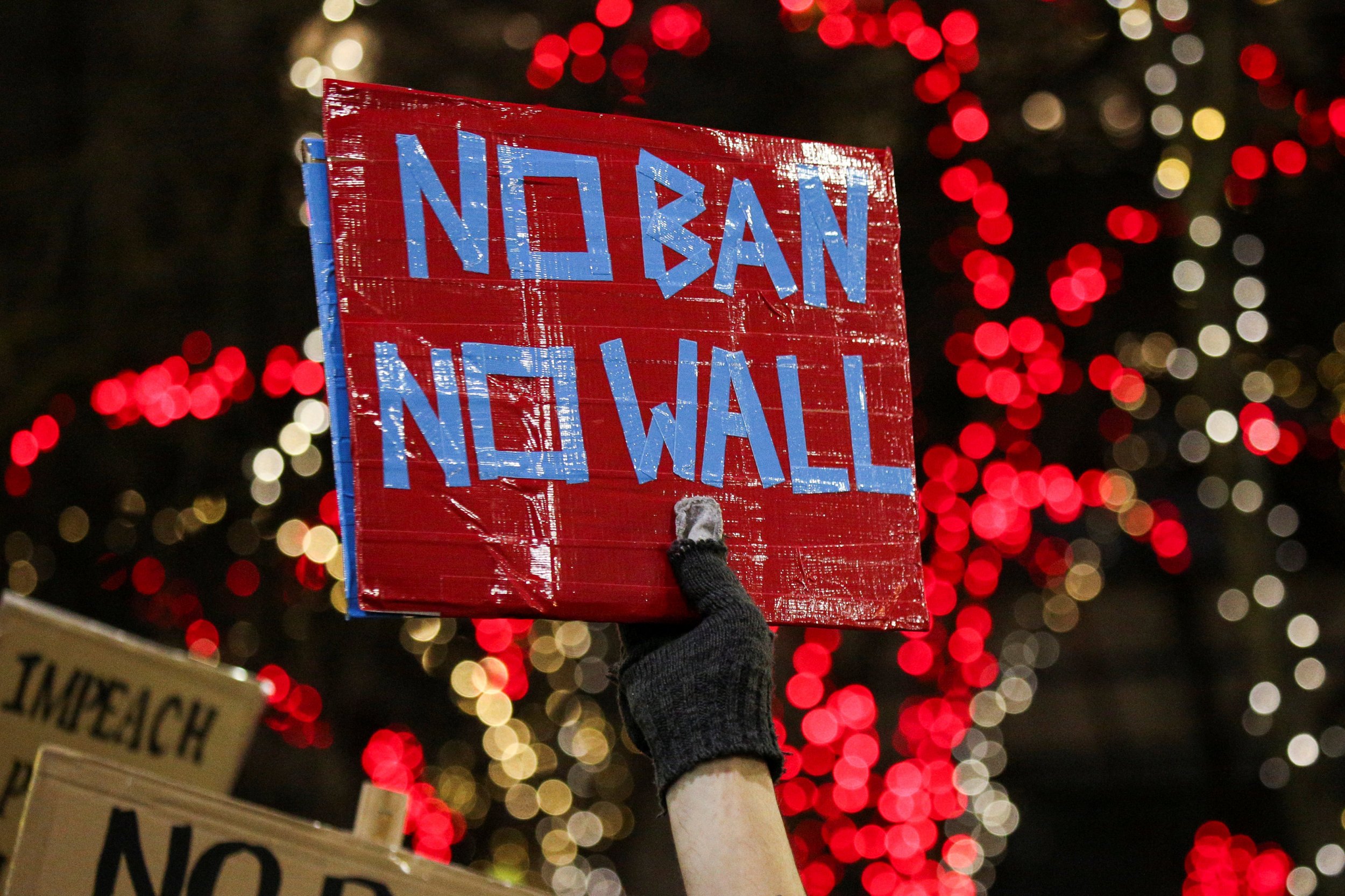
I state upfront I don't want to write this. I avoid drama and politics in equal measure, preferring to focus on my narrow lane of developing best practices in counterterrorism, focusing on work with local liaisons. However, various streams of drama, politics, counterterrorism and effective liaison work have crossed paths over an unfortunate and unavoidable weekend, leaving me with a choice to speak out or stay quiet. Here's my choice:
I'm struggling to put into words how complexly dumb this executive order is, like struggling to see good policy through a busted kaleidoscope of simple slogans for complex problems. The reason counterterrorism policies tend to flow relatively unchanged from one administration to the next is that there are no secret plans or answers; for the U.S., as it is everywhere, counterterrorism is an intensely local challenge upon which we apply campaign-slogan and well-funded international solutions. If money and slogans were the answer, the U.S. and Hollywood would have ended terrorism years ago. The answer, seen in the reaction to the executive order, is complicated, fast and then slow, and based on individual judgment, the antithesis of ill-thought-out sweeping policy.
Before we can understand how destructive the January 27 executive order on terrorism and immigration is and will be, it's important to better understand how local the once 'Global War on Terror' is in reality. The billions of dollars that the U.S. spends on its global counterterrorism efforts understandably give the impression of a global endeavor sprung from Washington D.C. and imposed at will upon respective targets. This is true only in a budgetary sense, because at the end of most every trigger and most every honest counterterrorism policy decision is information obtained through local liaison. The fight against extremism or whatever the term is always fought first and most often by liaison personnel scrambling for personal connections. With more satellite imagery and more drone weaponry, we have the optics but we still lack the insight. This recent executive order blinds us even more. It's a simple insult to a complex problem. Real life counterterrorism is always complex.
RELATED: Trump's immigration ban and the loss of our democracy
The first counterterrorism raid of the new administration was a special operations forces raid in Yemen announced on January 29 in which a U.S. service member was killed. His death was part of a unilateral raid with a a hard landing by one of the aircraft; the raid was most likely derived from local intelligence. Any rescue attempt if the raid had gone poorly in a larger sense would have depended heavily on local support, with locals now globally branded by the pen of the U.S. president as terrorists unworthy of even superficial consideration in the visa process. That this process is already thorough and lengthy for areas in which vetting is an issue, such as Yemen and other failing states, is a major problem with the new executive order, which simply repackages the old procedures in a planetary-wide insulting signature order.
Rarely does a government shoot itself in the foot and face with such perfect aim; mostly our injuries are an unexpected ricochet of bad shots. Yet the January 27 executive order, signed in very high-profile fashion by President Trump in his first week of office, is a bullseye of obvious error. As of Saturday, liaison or militia efforts in seven countries were made unnecessarily difficult. The visa process for those who helped the U.S. when it needed help the most is already a sham and a shame; the wait for Afghan and Iraqi citizens who helped the U.S. at grave risk is years long; this newest order just makes official what was for them and others a painful and unrequited courtship.
The restrictive visa order titled "Protecting the nation from foreign terrorist entry into the United States," is in line with the proposed executive order on torture and Guantanamo Bay; both are as politically helpful as they are internationally hurtful. Both actually suffer from the same delusion: that a stereotype or exception of a rule makes for a good rule. The immediate and long-term approach to global counterterrorism requires an intensely local approach, one that the poorly conceived, written and executed sweeping executive order not only doesn't advance but rather hinders.
Patrick M. Skinner, a former CIA case officer, is director of special projects for The Soufan Group.
Uncommon Knowledge
Newsweek is committed to challenging conventional wisdom and finding connections in the search for common ground.
Newsweek is committed to challenging conventional wisdom and finding connections in the search for common ground.
About the writer
To read how Newsweek uses AI as a newsroom tool, Click here.








